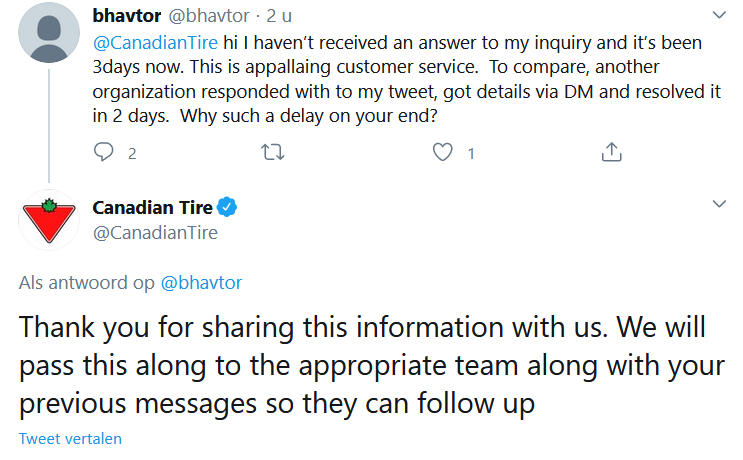- by Tom Blok

Scammers see every one of us as targets. We all get calls, emails, and letters that try to steal our personal information, such as credit card or social security numbers.
Scams work because they catch you off guard and knock you off your balance for just the right time. Before you can think straight, you have been scammed.
In this article we will help you to reconize and report scams.
Table of Contents
Top 10 Most Common Scams
Even though there are plenty of legit ways to earn money online, scams are also very common. Scammers use various methods to cheat you in ways you can only imagine. From approaching you on your doorstep to spam emails and fake phone calls, they have many ways to target you.
However, it’s possible to spot a scam if you know the common ways the fraudsters can approach you. Here are ten common types of scams today.
Advance Fee Scam
An advance-fee scam involves a scammer who gains trust and exploits the victim using their weakness, naivety, compassion, or greed.
A scammer usually promises to give the victim a large amount of money after paying a small up-front payment. This payment is requested for believable reasons like paying the tax.
When the victim makes the payment, often an international transfer, the scammer disappears, never to be seen again.

Banking Scams
In Bank scams, the scammer tries to access your bank account. They send you a counterfeit check and ask you to deposit it in your account and post some part of it to them.
However, since the check is fake, you have to pay the bank the amount and lose whatever you sent to the scammer.
Alternatively, a scam company might send you an email asking you to send them your bank account or card number to verify it. They might also set you up for an automatic transfer of money for some trial or scheme you didn’t apply for.
Lottery and Prize Scam
In lottery or prize scamming, a scammer tries to steal your money or personal information through fake lotteries or sweepstakes.
They tell the victim that they’ve won a large sum of money, but to receive it, they need to provide personal information or a small fee.
You can receive the message through an email, phone call, letter, or text message. However, if you haven’t entered a competition, you can’t win and end up losing what you already have.

Dating Scams
Dating and romance scammers create fake profiles on online dating sites to lure you in. They use fake names and false identities of real people. This is also called “catfishing.”
These scammers express strong feelings for you to enter in a relationship so that they can get money or personal details out of you.
They might quickly suggest moving from the website to a different platform such as messaging or email.
After a while, they will exploit your emotions by taking advantage of you through money or use you for money laundering and other criminal offenses.
Online Shopping Scams
Online shopping scammers pretend to be authentic online sellers while using fake websites, ads, or stolen logos and domain names. They use technology to look like original sites, with sophisticated layouts.
A shopping scammer may show you a high-quality product at a significantly low price, and then send you something cheap or nothing at all.
They usually cheat you through an advanced or pre-order online payment, which you can’t get back once you have paid. The scammers might also fake a platform just to get your credit card or bank account details.
Employment and Investment Scams
Investment scammers convince you to invest in a fake project, promising high profits without any risk. Since there is nothing you invest in, your money is lost.
On the other hand, employment scammers offer you to work from home, with a high salary after upfront payments. These payments can be for a training course, uniforms, taxes, or other fees.
These scammers might reach you through email, ads, or fake websites.

Charity and Medical Scams
Charity scammers pretend to be authentic charity organizations and ask you for donations for natural disasters, or fictitious families or characters.
They take advantage of your compassion and generosity, convincing you that you are donating for a good cause.
Medical scammers offer a variety of services and medicinal alternatives outside a certified hospital. They promise quick recovery and ask for money before the treatment.
Both of these scammers might approach you on your doorstep, or even through online platforms like Gofundme. They might request money through calls or emails too.
Census-Related Scams
Census scams involve a scammer pretending to be from a Census Bureau to ask for personal information for identity theft or fraud. The scammers might send you letters or approach you at your house or workplace to collect information.
They impersonate higher officials and gain your trust, so you believe they have been sent from an agency to ask you specific questions.
Computer Hacking
We have all received phishing emails in spam where a scammer asks you about your bank information, telephone number, or other personal information.

These scammers trick you into clicking links or installing software that enables the hacker to access your files and track your activities.
On the other hand, ransomware limits your access to your files and demands money to unlock your device. If you don’t pay, you can’t be sure if your computer will be unlocked.
Doorstep Scams
Door-to-door scammers pretend to be employees or students who are doing part-time jobs to warm pocket money. They convince you to buy products from them that you don’t need, or won’t receive.
In worse case scenarios, the salesperson is a burglar who distracts you so they can steal your valuables. The scammer approaches you and tries to enter your house without an invitation.
They usually offer magazine subscriptions security systems, home improvement products, and similar things.
How to Reconize a Scam?
Knowing about what you’re dealing with can help you make quick and effective decisions that can save you from getting scammed. However, people with prior knowledge or experience may also fall for scams.
Here are a few tips to protect yourself against scams.
Be Aware and Alert
Whether you are dealing with an uninvited salesperson or an unexpected phone call, always weigh their chances of being a scammer. If an offer or a product looks too good for the price tag, it is.
Investigate the Person or Authority
Before trusting a stranger, you should know who you’re dealing with. Make sure you take out time to do a bit of research and see what the internet says about it.

If you receive an unexpected yet important text or call from an authentic platform, contact the authority directly to ensure it is safe to respond.
Don’t Click on Doubtful Links or Attachments
If you get an email or text with a suspicious link or attachments in it, delete it. Also, don’t use the contact numbers provided in the message.
Keep your Personal Details Safe
Before throwing any bills or papers with your details on it, shred them into pieces. You should also control what you’re sharing on social media, as scammers can get a lot of information about you from your pictures and posts.
When it comes to your devices, like mobile and computer, make sure they are password-protected.
If a person requests temporary access, don’t share any information with them. You can also keep safe by avoiding public hotspots to use online banking.
Deny Unusual Payment or Detail Requests
Never send your personal details such as bank account or debit card number to someone you don’t trust.
Typically, scammers will ask you to use an unusual method for money transfer to load debit cards, gift cards, and more. They might also ask you to transfer money from one source to another which might be a part of money laundering.
Be Careful While Shopping Online
When you are shopping online, never transfer money in advance if you are not using a trusted site. Moreover, if an offer seems too good to be true, it probably is.
Always shop from safe and trusted sites, and report any scams you come across.
Why Should You Report Scams?
With advanced technology and newly emerging events, scammers are able to make believable scenarios that are likely to convince you to give them money or information.
Scammers don’t stop at one person and approach masses to scam as many as they can. So, talking helps you connect to people who have gone through a similar experience and might be able to help you.
Alternatively, your experience might save someone else from getting scammed and be more cautious.

As soon as you think you see a scam, it is important to file a complaint. If your complaint is effective, it is likely to have one of these outcomes:
- No action
- An apology
- Practical action against the scammer
- A compensation and practical action against the scammer
Even if you don’t get compensated for the scam, the investigators can use the complaint to build a case against the scammer.
Initially, if your complaint stands alone and doesn’t attract much attention, it will eventually be used by law enforcement agencies when they see similar reports that need to be investigated.
Your complaint makes a difference.
How to Report a Scam?
Reporting scams can stop them once and for all. If you think you have spotted a scam, call or message someone you trust, such as a family member, friend, or neighbor.
Once you are sure you have been ripped off, file a complaint in the ways below.
Get in Touch with the Financial Institution
If you have transferred money or shred your bank account or credit card details, contact your financial institution as soon as possible. They might be able to stop a transaction or close your account.
The credit card providers may also be able to reverse the transaction if you have been billed wrongly.
Write a Letter or Email
Fill out a complaint form, or write your complaint in a letter or email to submit it to the relevant authority.
Make sure you provide your contact details so that the authority can contact you back.
Social Media
Social media is a great way to share your experiences with people and submit complaints that will attract attention. Your complaint is likely to get attention from the consumers and management of the page.

When putting up a post on social media or leaving a message, keep in mind it may take a while for the customer support to get back to you unless it runs 24 hours. They might also have a specific time to listen to complaints, so it will take a while to get resolved.
If you aren’t getting a reply in private, try posting publically. Posting on the wall will draw a lot of attention from the followers of the page.
Hence, a negative post might damage the brand’s image, making sure your problem is solved for your positive feedback.
Submit a Complaint on a Third-Party Website like ours
You can submit your complaint to a third party website such as ours. We will make your complaint visible on our website, social media, and search engines. We will also reach out to the concerned organization or business to make sure it is taken seriously.
In addition, you can also come into contact with people who have experienced the same. You may even be able to start legal proceedings together.
Summary
To conclude our article, writing a complaint only takes a few minutes but can make a huge difference. You can use websites like ours that make your complaint visible to people worldwide.
Once a scam is exposed, they can no longer use their name to cheat people and are likely to attract the attention of the authorities.



